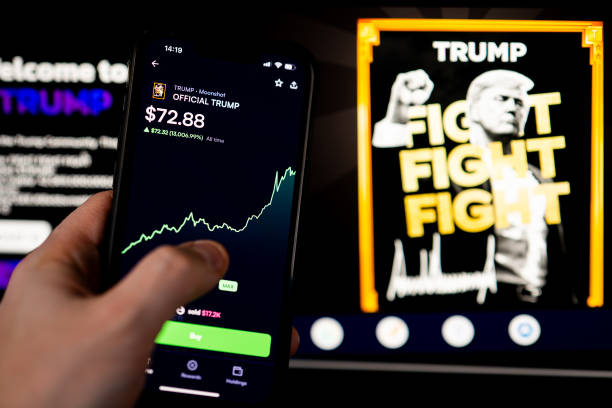
For many, sending money to a family member or business in a different geographical locale is a common practice. These peer-to-peer transfers — known as remittances or cross-border payments — are frequently sent by wire, mail or online transfer. Unfortunately, these monetary transfers can take days to complete as well as result in fees and hidden costs that can add up quickly.
At present, there are only two primary methods of moving money: the traditional route of transferring from bank account to bank account or through remittance networks such as Western Union. Both of these processes are expensive, as confirmed by a 2016 World Bank report which found that the average cost of sending a remittance just out of the U.S. stood at around 6.01 percent.
The top remittance-receiving countries, according to another World Bank study, include Mexico, China, India and the Philippines. The first of these countries continues to capture the bulk of media attention with remittances to Mexico totalling $26.97 billion in 2016, up nearly 9 percent from 2015. This was the highest ever according to figures from the Mexican central bank dating back to 1995.
A New Solution
Because of the high costs and long wait times associated with money transfers, the global remittance space has long been talked about as a target for disruption. Now, a U.S. based startup called bridge21 believes it can create a new strategic advantage in international transfers over banks and money transmitters, beginning with Mexico.
Headquartered in Denver, bridge21 is a web- and mobile-based service that allows money to be sent and stored in any currency. It was founded with the objective of fueling a new model of “money without borders.” Utilizing bitcoin as a means of settlement transaction, bridge21 facilitates transfers to FDIC insured bank accounts that are licensed and compliant in other countries.
The company originally started as a Bitcoin brokerage service before discovering a larger opportunity around the utilization of Bitcoin for remittance. Today, bridge21 is delivering what they believe will be a high demand service serving as the intersection between the purchase and sale of bitcoin for every transaction, without either the sender or receiver ever engaging with bitcoin. And all without the associated volatility and custodial concerns.
For a customer, the prospect of having a faster and safer mechanism for executing bank-to-bank transfers with significantly lower exchange rates is appealing. There is no denying that remittances are expensive, with the poorest people having fewer options and often being charged the highest fees. While other companies will claim their hold on this space, bridge21, which launched in beta in January, is poised to become the first globally to provide an end-to-end, “real-time” tool through the use of Bitcoin.
From a business commerce perspective, while global trade has grown significantly since the 1970s, the cross-border payment model has changed very little. It’s here where businesses hope to capitalize as well through bridge21’s lower payment processing costs, settlement times, and risk exposure leading to lower pre-funding expenses and exchange rate risks.
The Use of Bitcoin as a Payment Rail
It is well established that Bitcoin can be sent throughout the world without the need for a third-party intermediary such as bridge21. The problem, however, is in how it is accessed by those on the receiving end once it arrives.
Here’s how it works: bridge21 provides a means for any user possessing a U.S. bank account to send money to a Mexican bank account. Money is withdrawn from the sender’s account and used to purchase bitcoins, which bridge21 references as “digital cash.” bridge21 then sends the bitcoins to Mexico where they are sold for pesos and then deposited into the recipient’s bank account.
The process is fast and occurs after a simple confirmation on the Bitcoin network. And because the use of Bitcoin is not readily apparent to the customer, they view it as they would any other traditional bank-to-bank transaction.
bridge21 is currently live from the U.S. to Mexico. This week, the team announced a new feature involving a major price reduction for U.S.-to-Mexico transfers, with the ability to send money to Mexico for 2 percent or even 5 percent less than standard pricing from the two countries. This Bridge Rate is tied to the true cost of purchasing and selling bitcoins in two countries, including the network fees.
These developments come amid major media attention on Mexico tied to U.S. President Donald Trump’s anti-Mexican rhetoric and threats to construct a border wall to keep out illegal immigrants. The president has even said that he wants to confiscate a percentage of Mexicans' remittances to pay for his border wall, a move that may be gaining traction. The Mexican government has said it will continue to support the free flow of remittances into the country.
bridge21 contends that the majority of money movement between the U.S. and Mexico isn’t the $25 billion or so sent from U.S. workers sending money to their families in Mexico; rather it’s roughly $500 billion sent bilaterally among businesses and very wealthy people conducting business trades largely through bank transfers.
According to bridge21, taxing individual remittances will concentrate the cost on just 5 percent of the cross-border money flow, which would include the poorest people who can least afford it. This could have two effects. First, it could drive money transfers toward informal money transfer networks (i.e. the black market). Second, it could lower the already tepid standard of living of the poor. Neither of these reflect a good outcome.
Founder and CEO Will Madden spent a good portion of his career at Western Union building and running payments and remittance products. He first learned about Bitcoin in late 2010 and began to envision the potential of this technology to transform cross-border payments.
Madden says that bridge21 is focused on continuing to improve the ease with which individuals and businesses in the U.S. can send funds to Mexico. He notes though that the company has ambitious goals for 2017, including expansion into several additional corridors to fulfill its mission of providing access to money without borders.
“We’re not stopping with Mexico,” said Madden, “We see much potential to expand to additional corridors such as the EU, U.K. and India which see heavy traffic of businesses and individuals sending funds outbound from the U.S.”










